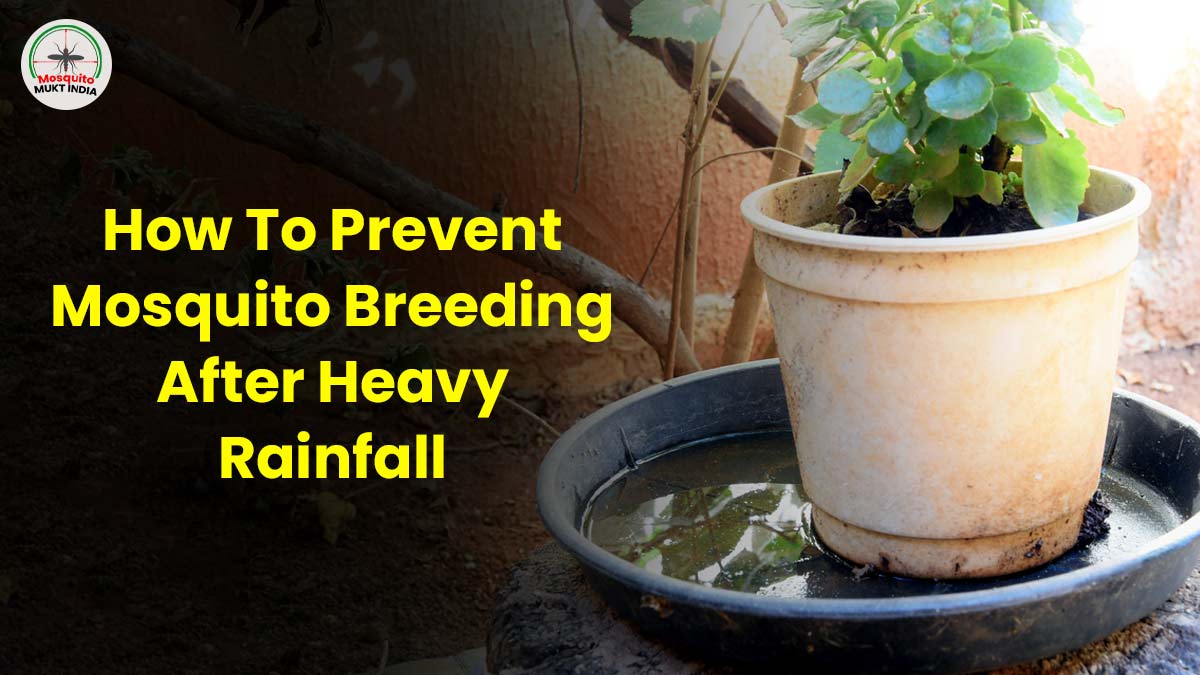
Wherever there is standing water, mosquitoes are likely to follow, as it provides an ideal breeding ground for them. Even the smallest pools of stagnant water, such as those found in flower pots, can host several mosquitoes. When we think of stagnant water, it’s hard not to worry about the monsoon season, when rainwater collects everywhere, even in the tiniest spaces. This often leads to undetected standing water, increasing the risk of mosquito-borne illnesses.
Table of Content:-
With World Mosquito Day 2024 around the corner, we at OnlyMyHealth are committed to spreading awareness about preventing mosquito breeding, especially during the monsoon season. This effort is part of our Mosquito-Mukt India initiative, which aims to educate people on how to reduce mosquito-borne illnesses.
Also Read: Mosquito-Mukt India: Understanding The Types Of Mosquito-Borne Diseases And How They Spread
Why Mosquito-Borne Illnesses Are More Common During Monsoon

As is known, the monsoon season brings with it heavy downpours, which increase the likelihood of stagnant water. Stagnant water is characterised by a pool of water that does not flow for a long period of time.
When this happens, female mosquitoes lay their eggs in this standing water, where they hatch and, within days, become adults and carry forward the cycle. The probability is even higher in warm and humid conditions. This can significantly increase the risk of mosquito-borne diseases like dengue, malaria, and Zika, which is why eliminating or regularly emptying sources of standing water around homes and communities is a crucial step in controlling mosquito populations.
Immediate Steps To Take For Mosquito Prevention After Heavy Rainfall

Speaking with the OnlyMyHealth team, Dr Suchismitha Rajamanya, Lead Consultant and HOD - Internal Medicine, Aster Whitefield Hospital, Bengaluru, urges people to look around and pay special attention to one’s house after heavy rainfall. This particularly involves areas such as drains, flowerpots, or bird baths. One must remove any pooled water and stop water from collecting in the lowest parts by improving drainage or filling hollows with soil.
Additionally, the doctor recommends essential steps such as using mosquito traps and encouraging community-wide clean-ups, such as removing debris from drains and improving the overall drainage system. If you have swimming pools, hot tubs, or any ornamental ponds, clean them regularly and chlorinate them. Cover pools when not in use, and aerate ponds to discourage mosquitoes from laying eggs. Moreover, keep your lawns trimmed and bushes well-maintained to eliminate potential hiding spots for adult mosquitoes.
Besides these measures, personal protection like covering the body with long-sleeved clothes and applying repellents can be helpful against bites, she shares.
Natural Ways To Repel Mosquitoes

In addition to identifying and eliminating standing water, it is also important to keep mosquitoes at bay.
Dr Rajamanya says, “One can plant citronella or lavender-like plants near flooded areas to repel mosquitoes. Other ways include using natural larvicides such as Bacillus thuringiensis israelensis (Bti), which is a bacterium that kills mosquito larvae but does not harm other fauna.”
Conclusion
Vigilance is key when it comes to preventing mosquito breeding and the spread of mosquito-borne illnesses. This is particularly true for the monsoon season, when standing water becomes more prevalent. It is crucial to take immediate steps, which involve identifying stagnant water, eliminating it, and maintaining outdoor spaces. You must also use natural mosquito repellents that can help reduce the risk of diseases like dengue, malaria, and chikungunya.
Also watch this video
How we keep this article up to date:
We work with experts and keep a close eye on the latest in health and wellness. Whenever there is a new research or helpful information, we update our articles with accurate and useful advice.
Current Version